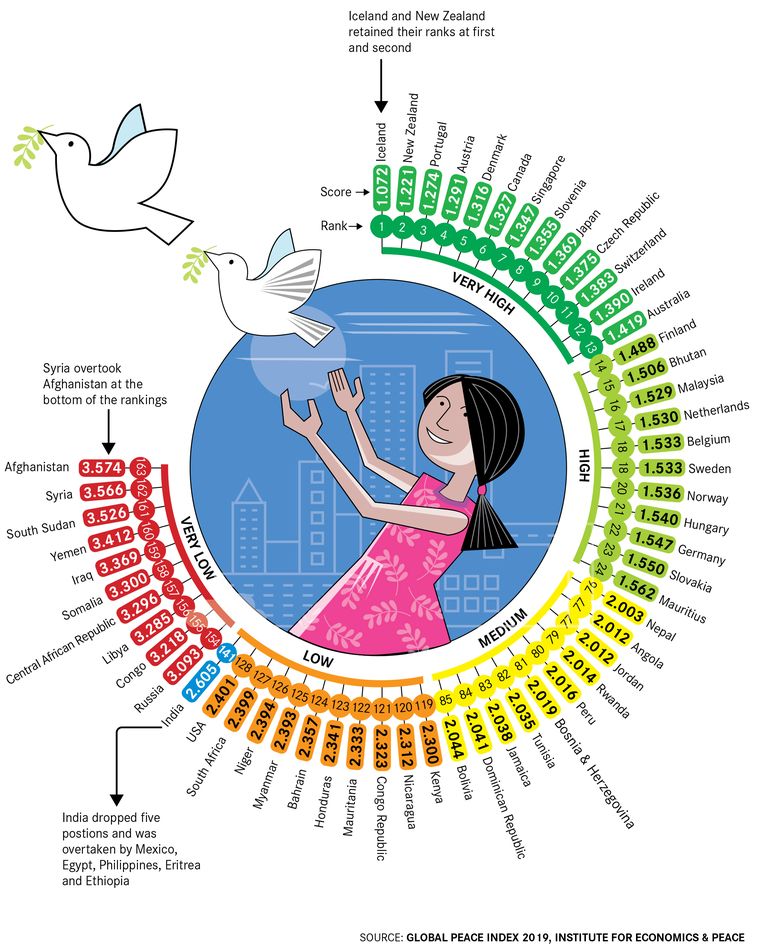It is not easy to think of a global ranking list in which the United States is placed between South Africa and Saudi Arabia. At first glance, there are hardly any common factors to bunch the three states together. But in the Global Peace Index, which ranks 163 countries in the world on the basis of their peacefulness, they are placed next to each other towards the bottom of the list, with the US occupying the 128th position. The index, published by the Sydney-based Institute for Economics and Peace, ranks countries on multiple criteria such as how safe their streets are, the number of weapons they buy and sell and the extent of their involvement in global as well as local conflicts. India is placed 141st in the index.
On top of the list is Iceland, a tiny sliver of land in northern Europe dominated by massive glaciers, fiery volcanoes, scary lava fields and a bunch of peaceful Vikings. The country has headed the list since 2008, and is joined at the top by New Zealand, Austria, Portugal and Denmark. New Zealand, however, is unlikely to retain its position next year because of the mass shootings at two Christchurch mosques in March. From 35 deaths in a year, it recorded 49 in a day. Afghanistan is the least peaceful country, followed by Syria, South Sudan, Yemen and Iraq. The Middle East, which is home to four of the ten least peaceful countries, remains the world’s least peaceful region.
Although the average level of peacefulness has improved slightly this year, global peacefulness has deteriorated by about 4 per cent since 2008. The deterioration has turned out to be frightfully expensive, robbing the global economy of $14.1 trillion last year, costing each one of us $1,853.
A number of factors have resulted in the deterioration of global peace. The world is undergoing a right-ward shift. There is growing fascination for muscular nationalism and benevolent despotism, evident from the popularity enjoyed by leaders such as Narendra Modi, Vladimir Putin, Xi Jinping, Recep Tayyip Erdogan and Viktor Orban. The liberal democratic international order, once championed by the US, seems to be losing its appeal. The index says people, on average, have more confidence in Xi than they have in Donald Trump.
Climate change could be the biggest threat to global peace in the years to come, perhaps even more dangerous than wars. For instance, in 2017, nearly 60 per cent of global population displacements were caused by climate-related disasters, compared with 38.5 per cent caused by armed conflicts. As many as 97 crore people now live in areas exposed to climate change. It can lead to resource scarcity, livelihood insecurity and displacement, vastly increasing the risk of violent conflict. History offers ample clues to the danger mankind is facing as ancient civilisations such as the Akkadians, Mayans and Harappans had all perished from the ill effects of climate change.


